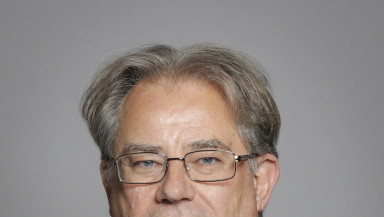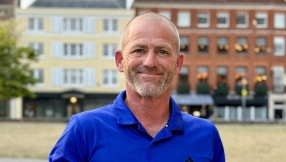
The Bishop of Oxford has published an open letter to Nigel Farage, criticising the Reform UK leader’s plans to overhaul Britain’s immigration system and accusing him of stoking fear.
Writing after Farage’s press conference in Oxford, Bishop Steven Croft described the city as “one of the kindest and most welcoming in the country” and said he was “profoundly” opposed to Reform’s proposals, which include deporting 600,000 migrants and withdrawing from international legal frameworks like the European Convention on Human Rights.
He wrote: “I heard no compassion in what you said for those who are at risk from people traffickers; those who fled for their lives; those who long for sanctuary and safety; the vulnerable who would be forcibly deported.
“The British people, as I understand them, want public policies founded on the deeply British and Christian values of compassion and care for those in need.”
He said that the Reform leader’s plans offered “broad brush” domestic crackdowns, and ignored the global complexity of migration, including the role of climate change, conflict, and international inequality.
“Migration is a global issue, not a local issue,” he said.
“Migration into Europe affects our neighbours. International co-operation is key to resolving and improving the situation… I heard nothing about collaboration other than attempting to negotiate bilateral agreements to return those who enter the country illegally.”
The bishop, who is a patron of refugee support charity Asylum Welcome, also criticised Farage’s approach for raising “hopes for some without the means of delivery,” arguing that previous governments had already struggled because of a lack of “compassion, attention to complexity, collaboration, or attention to the granular challenges of law and resources.”
Although he said he sympathised with people who have genuine concerns about the impact of migration, the bishop went on to accuse Farage of fear mongering, as he called for cross-party solutions.
“I disagree profoundly with your attempts to politicise the questions of migration and asylum by deliberately increasing fear of the stranger in our communities," he said.
He continued, “Community cohesion and mutual respect are vital assets in any local community.
“To see any politician with a public platform seeking to play on these fears and stoke division for political advantage is deeply disturbing.
“We are not helped by politicians who seek to stoke division for their own political ends.”
His intervention follows sharp criticism of Reform’s policy from the Archbishop of York, Stephen Cottrell, who, as interim head of the Church of England, said on Sky News that mass deportations were a “knee-jerk” reaction that would make the problem worse.
“You haven’t solved the problem,” said Archbishop Cottrell said. “You’ve just put it somewhere else and you’ve done nothing to address the issue of what brings people to this country.”
He continued: “Don't misunderstand me, I have every sympathy with those who find this difficult, every sympathy - as I do with those living in poverty.
“But … we should actively resist the kind of isolationist, short term knee-jerk 'send them home'.”
Farage has dismissed church leaders’ concerns, accusing them of being “out of touch”.
“Quite a few of them have been rather out of touch, perhaps with their own flock,” he said.
In his Oxford announcement, he insisted that Reform’s approach was necessary to restore order: “We believe that what we’re offering is right and proper and we believe for a political party that was founded around the slogan of family, community, country, that we are doing right by all of those things with these plans we put forward today.”
Within the Church of England, some voices argue that its senior leaders have oversimplified the issue.
Writing in a recent column for The Critic, priest Simon Brennan said that church leaders often lean on “well-meaning clichés” about compassion, justice and community, while failing to grapple with the more difficult theological and cultural realities of large-scale migration.
Brennan noted that bishops frequently cite passages such as the Good Samaritan (Luke 10:25–37) or Israel’s command to love the stranger (Leviticus 19:33–34), but argued this risks being “anachronistic.”
He suggested that biblical teaching on Israel also included warnings about the dangers of cultural dilution and the need to remain distinct as “a kingdom of priests and a holy nation (Exodus 19:6).”
“We really ought to be able to expect more from our Bishops than for them to simply offer soft-Left platitudes that sound like they were drafted by Peter Mandelson in 1998,” Brennan wrote.
He called on the Church “to provide a deeper theological reflection on what ‘loving your neighbour’ means in 21st-century Britain,” balancing compassion for refugees with responsibility toward long-standing communities unsettled by rapid demographic change.
Concluding, Brennan said that there was "a clear sense that over the last few years there has been a rapid and significant cultural change in the country and at present the Church of England is way behind in terms of what is going on”.













